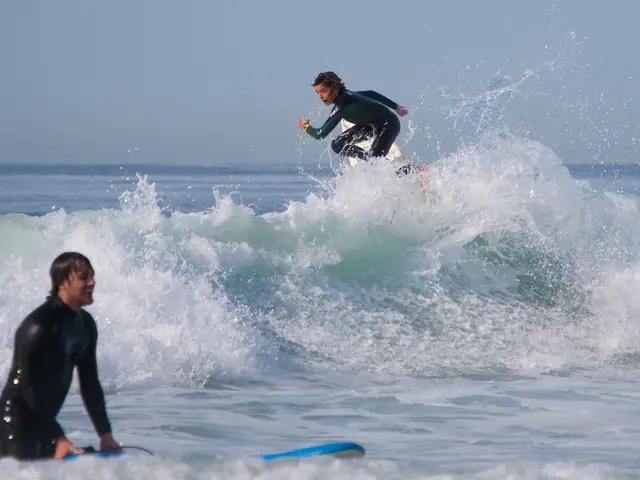Youth-Centric Podcast in Celebration of University Day
In a recent podcast episode from the University of Münster, medical director of the Clinic for Child and Adolescent Psychiatry, Psychosomatics, and Psychotherapy, Georg Romer, discusses the future outlook of many children and adolescents. While the podcast does not delve into specific crises or the impact of the COVID-19 pandemic on their social contacts, it does shed light on political interest among young people, drawing on findings from the Shell Youth Study 2024 and Romer's expertise in child and adolescent psychiatry and psychotherapy.
According to the Shell Youth Study 2024, political interest among youth is strongly influenced by their perception of political efficacy and the relevance of politics to their everyday lives. When young people feel that their participation can make a difference and see political issues as affecting their personal and social environment, their interest tends to increase. Conversely, political alienation or disillusionment diminishes their engagement.
Romer underscores the role of psychological and social factors in shaping political interest. Mental health, family environment, peer influence, and media exposure play crucial roles. Romer notes that young people's political engagement often depends on how supported and informed they feel in their social contexts, which includes the influence of parents, schools, and social media.
The impact of media, including social media platforms, is significant. These platforms can either motivate youth by providing accessible political information and enabling expression or contribute to political apathy if youth are overwhelmed or encounter misinformation. Media literacy is essential to help young people critically engage with political content.
Developmentally appropriate education that strengthens critical thinking about politics and social issues can boost political interest by making politics more understandable and relatable for young people.
Romer advises observing how children consume media, especially between the ages of 10 and 13, "when children discover media". As they grow older, a different approach may be required.
While the podcast does not address the fears of non-heterosexual children and adolescents about the future, it is worth noting that some young people, particularly those in this group, have expressed such concerns.
The podcast episode can be found on the University of Münster's website, offering insightful discussions on various aspects of child and adolescent development and mental health. Since 2013, Romer has been teaching and researching at the Medical Faculty of the University of Münster, bringing his expertise to the forefront of this critical field.
Read also:
- Harnessing Crowdsourced Research for the Preservation of Australia's Enchanting Wildlife Species via SeadragonSearch
- Living Situations of a Girl with "Fish Skin" Near Novosibirsk: Examination of Social Isolation Among Children
- Cellular device prohibition in Texas educational institutions: viewed as a stealthy form of addiction
- Emancipate from deceptive faiths: a compelling handbook








